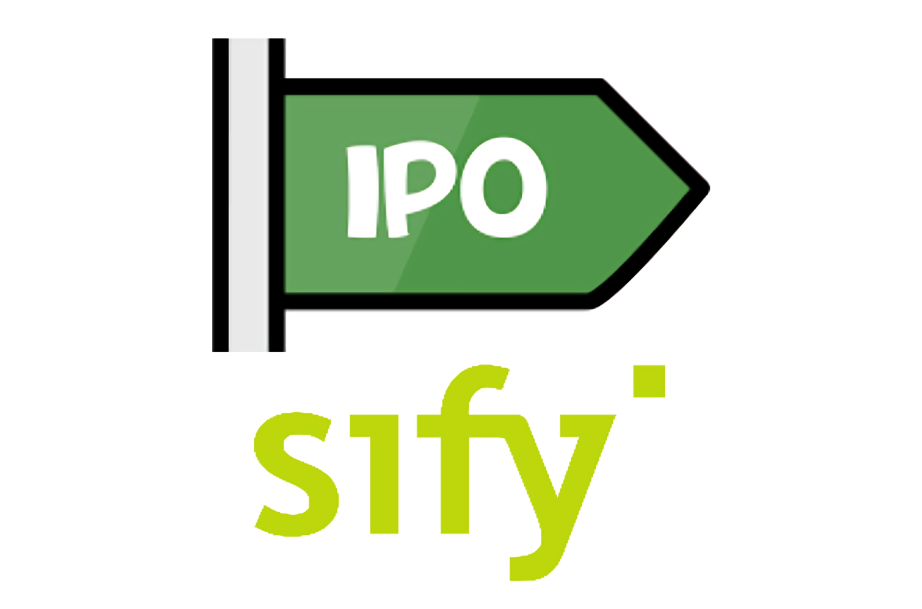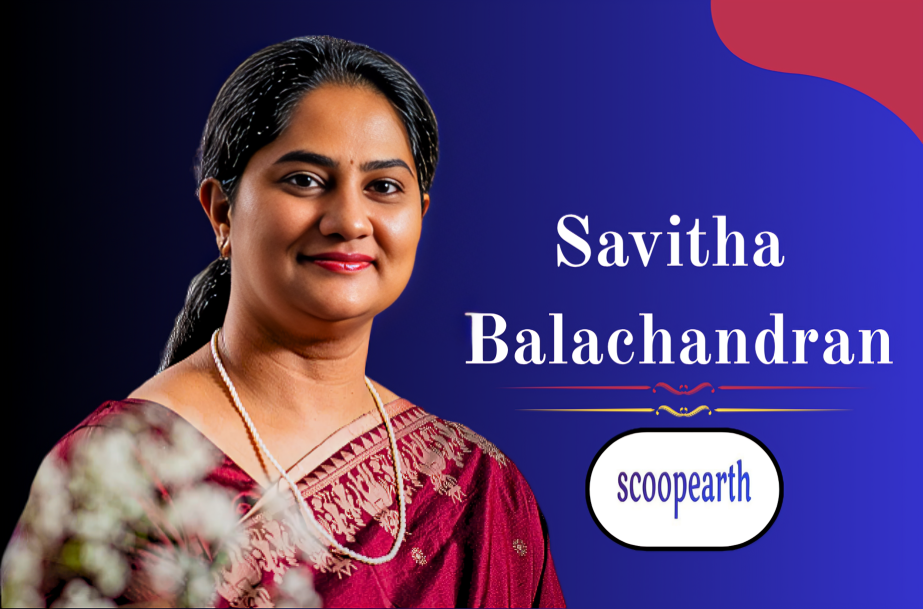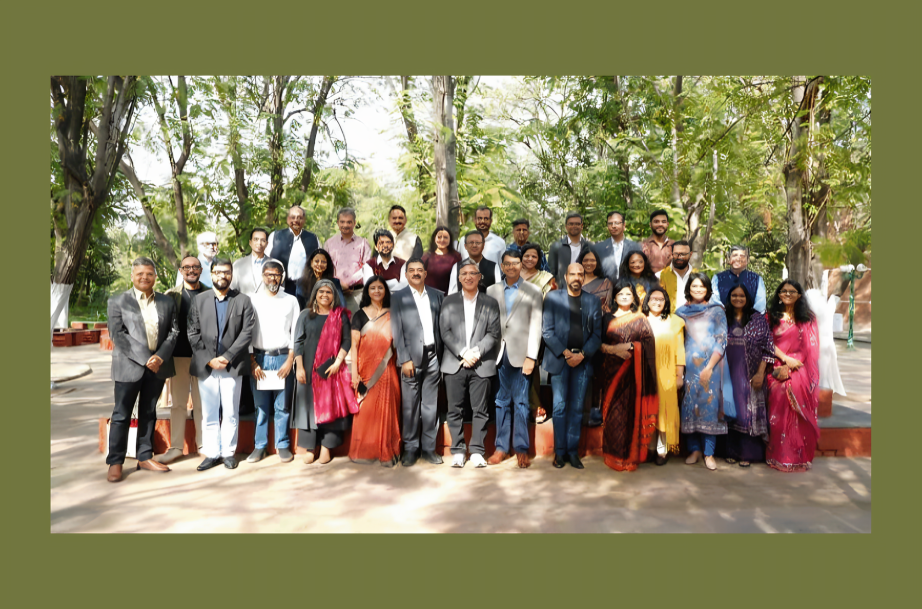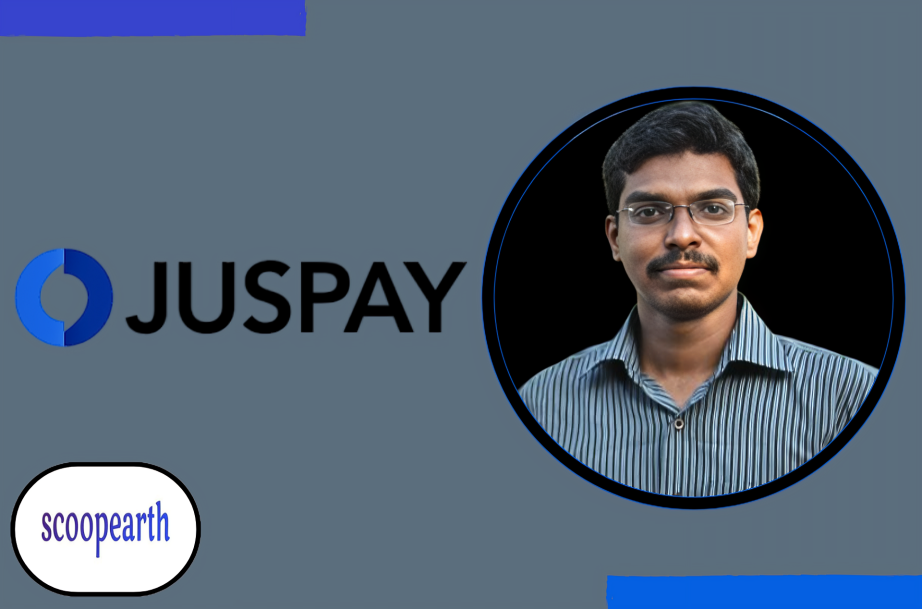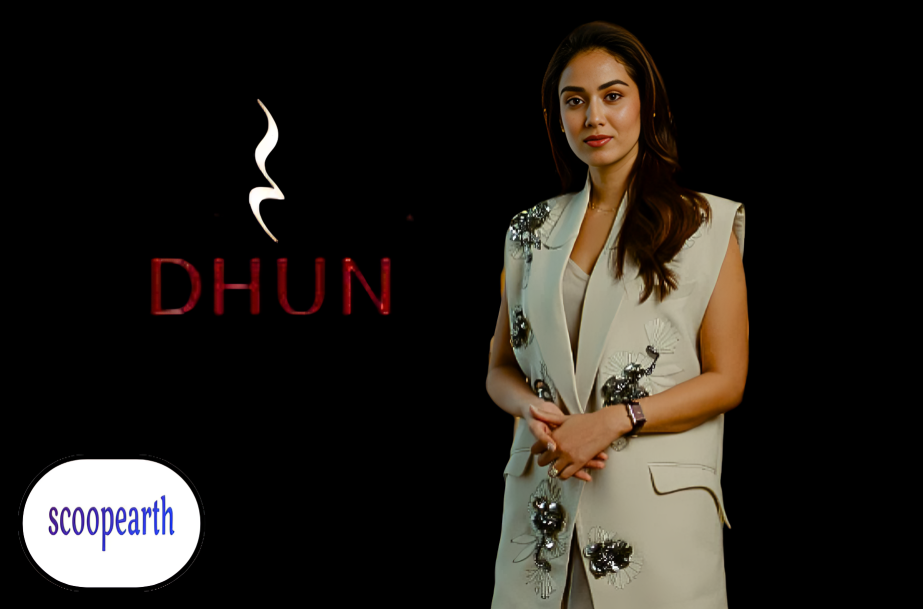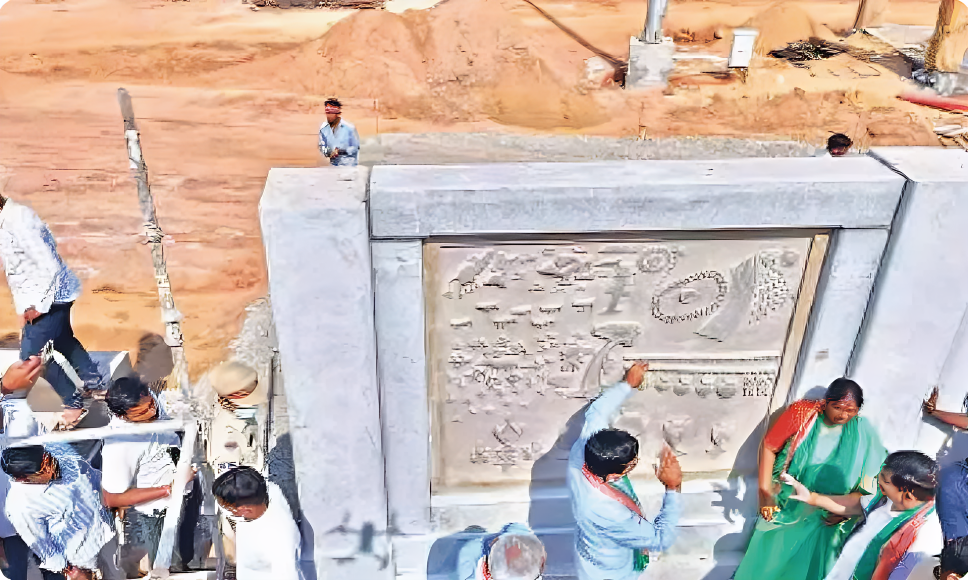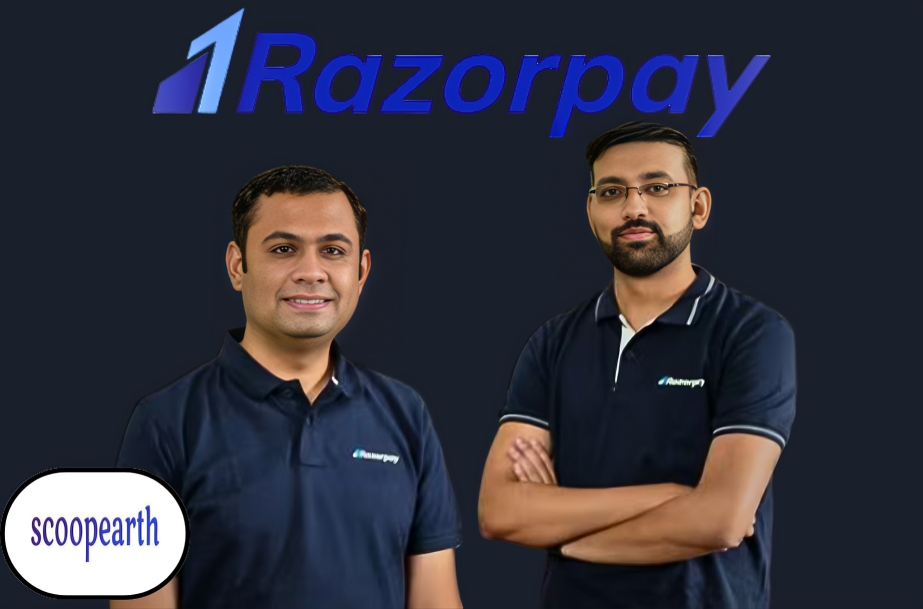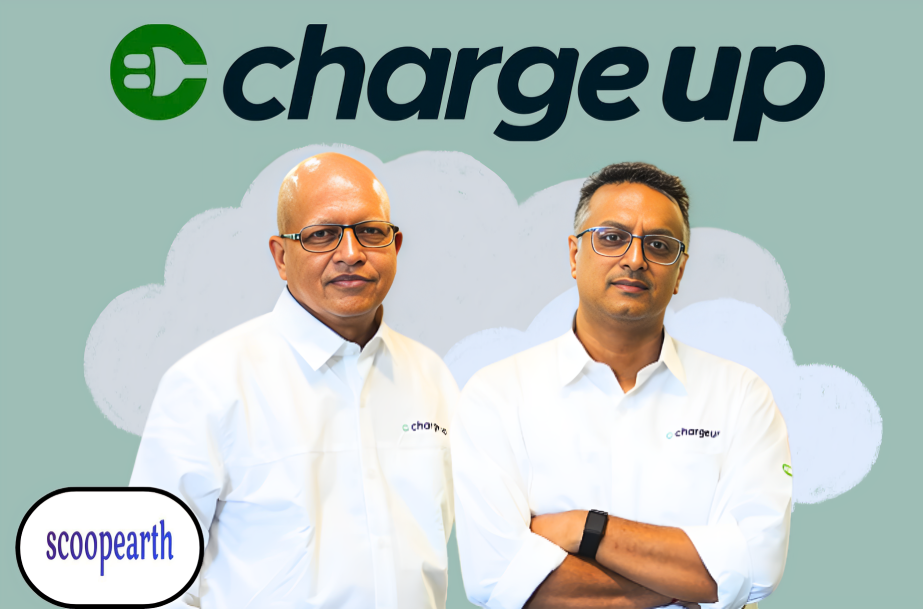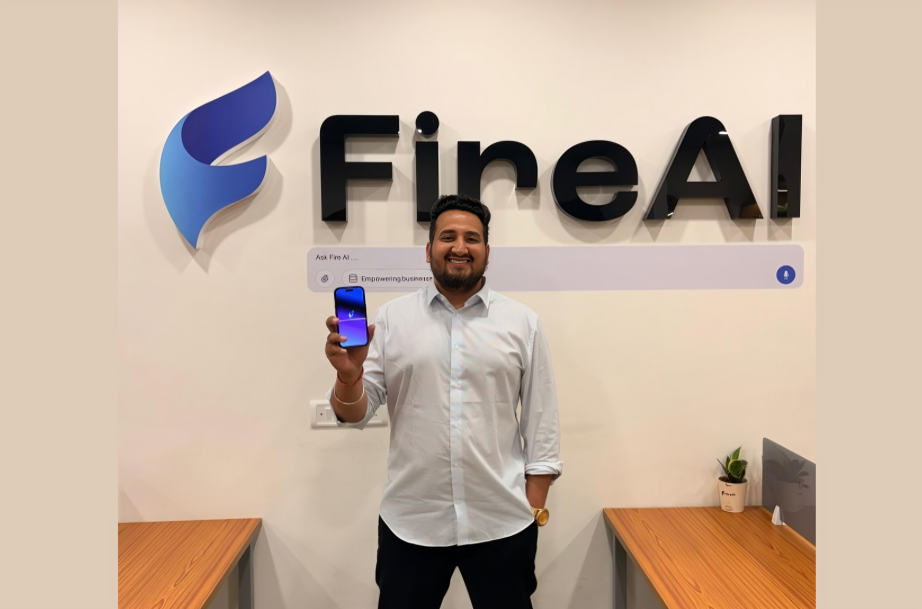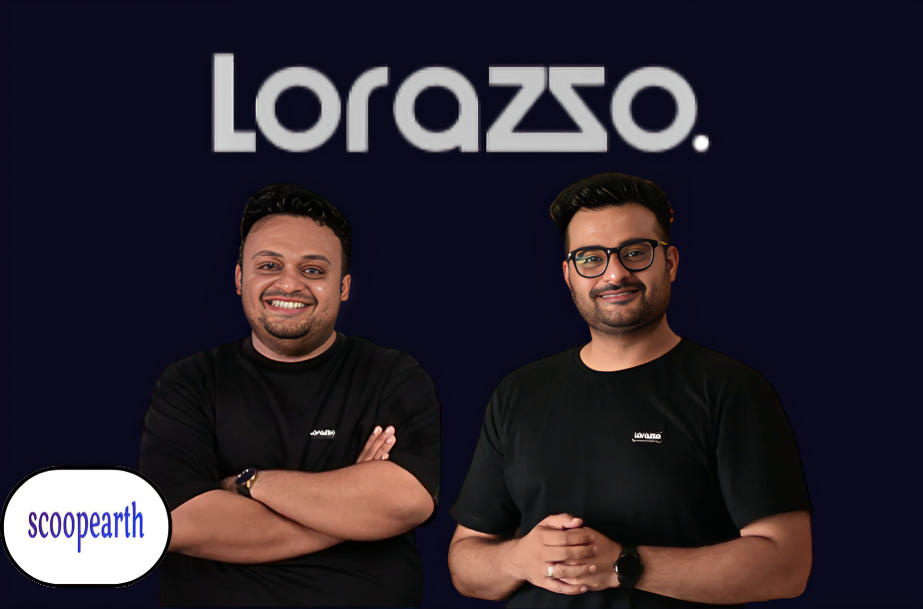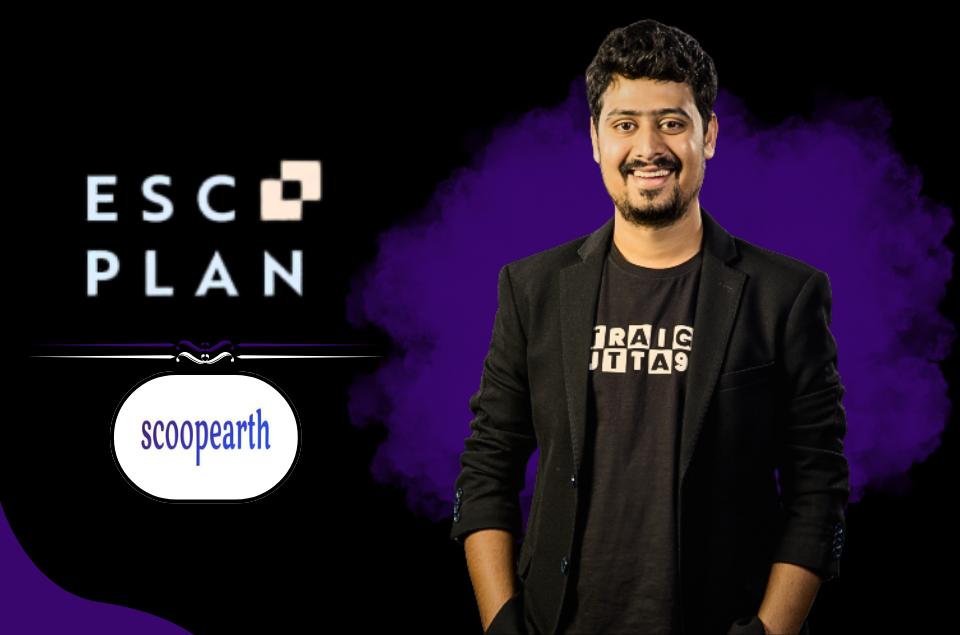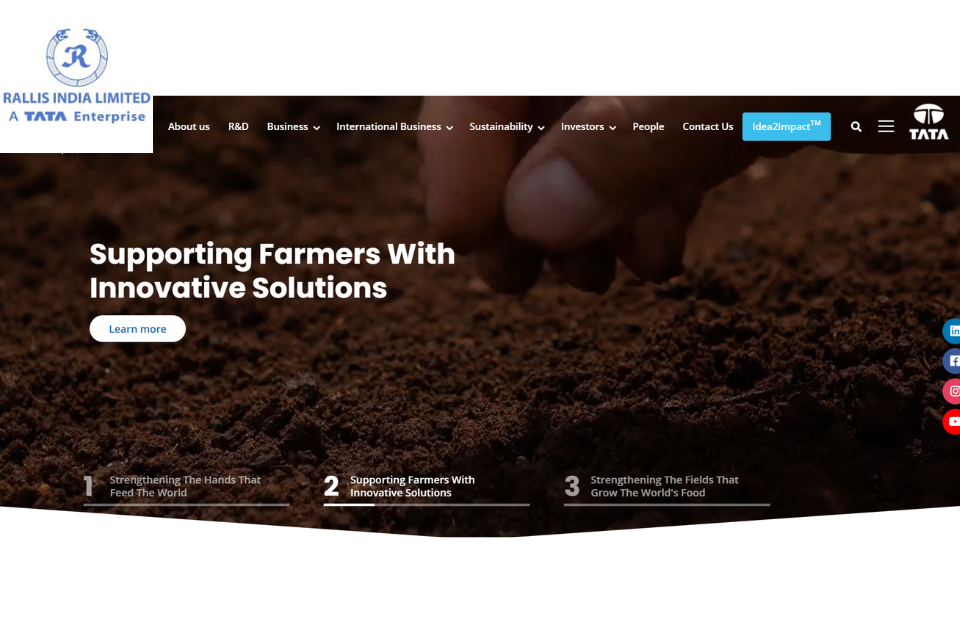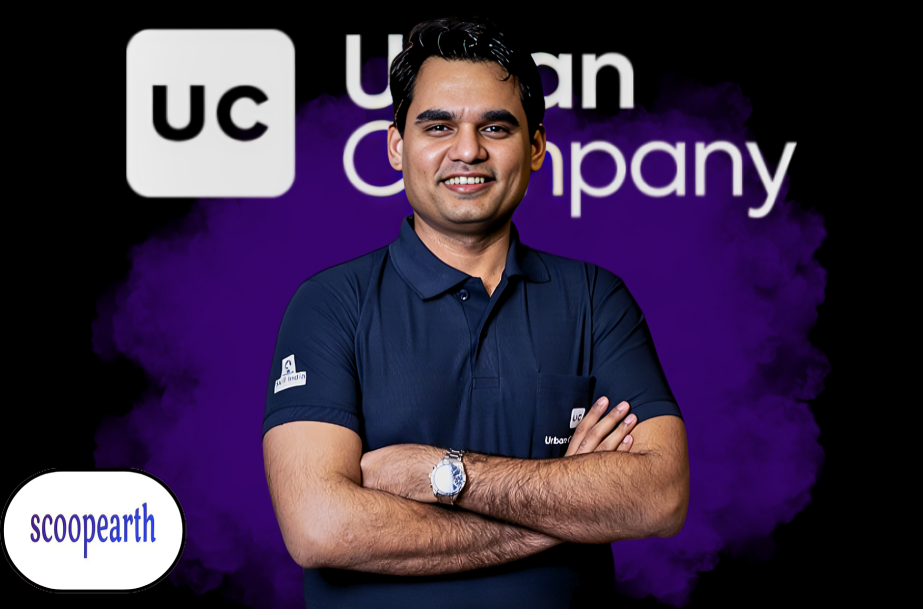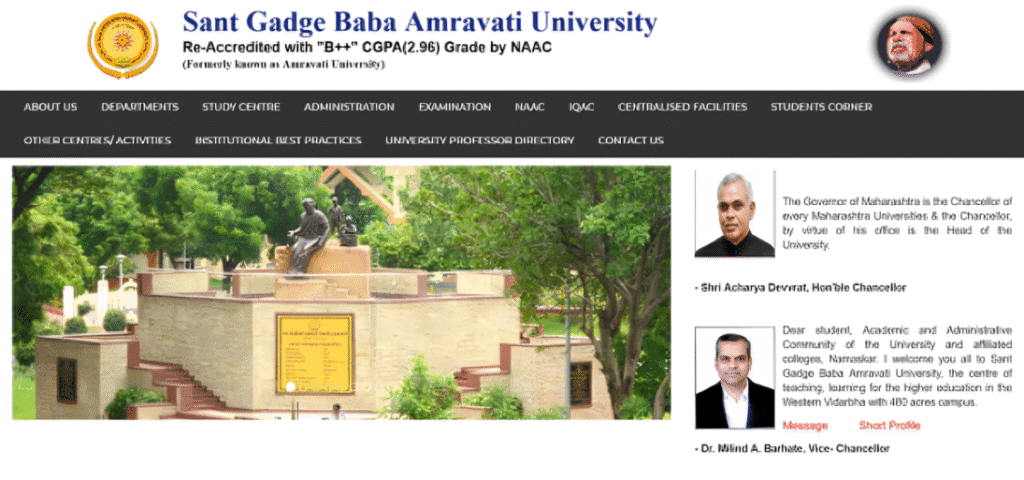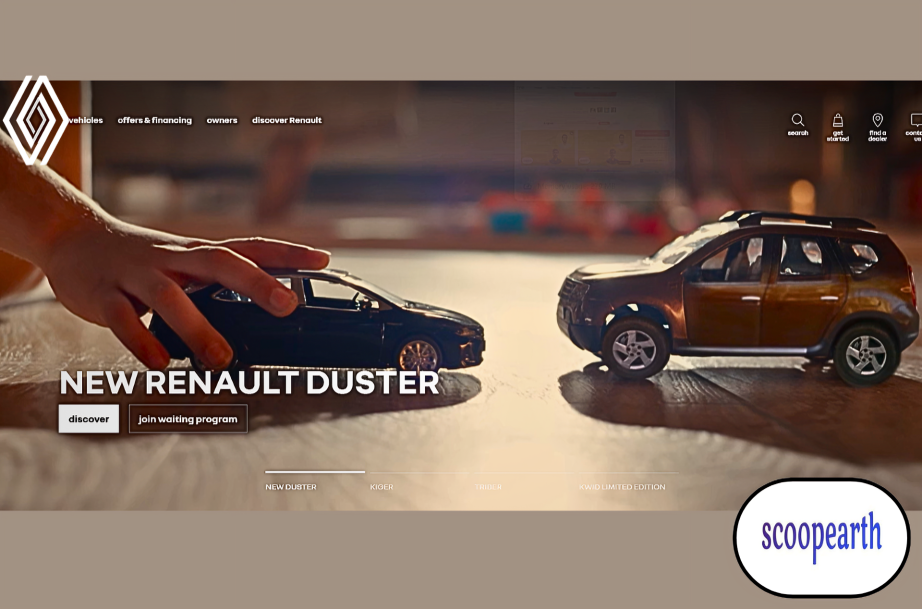Exclusive Interview with Neil Singh: The Visionary Behind NeilSingh.co
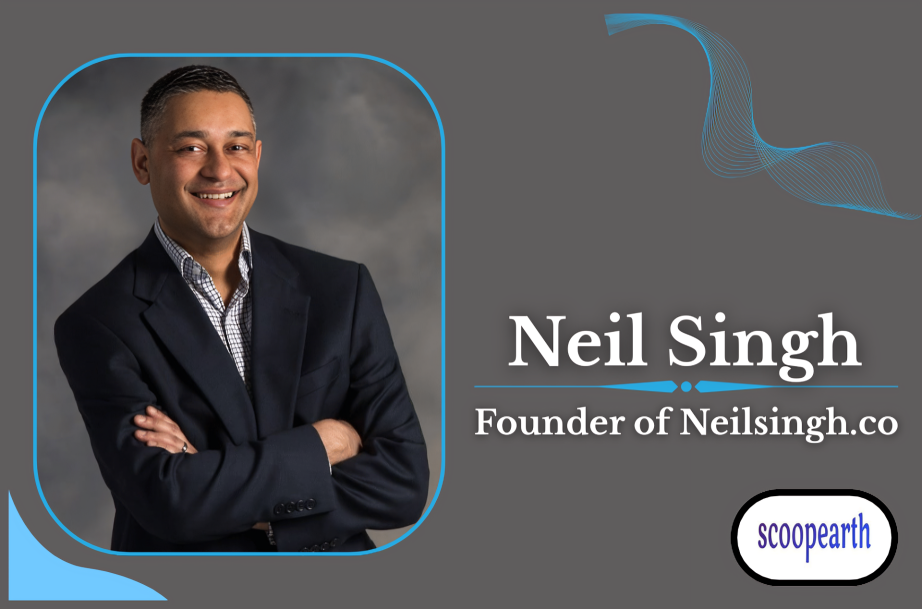
SUMMARY
Can you tell us about your background and what inspired you to start your entrepreneurial journey?
My ( Neil Singh ) entrepreneurial journey began in my twenties with passion-driven ventures that taught me a fundamental truth: innovation without business acumen doesn’t build sustainable impact. Those early experiences, while challenging, became the foundation for everything that followed. They taught me resilience, self-belief, and the critical importance of aligning technical capability with strategic business outcomes.
Fast forward through 25+ years of technology leadership, and those lessons have compounded into a philosophy I live by: purpose-driven innovation must serve people, not just profit margins. My journey from New Zealand to the United States in 2016 marked a pivotal transformation. Facing visa restrictions that prevented me from working for over a year, I channeled that constraint into opportunity building my personal brand through content creation, thought leadership, and strategic community engagement across platforms like LinkedIn.
That period of intentional brand-building led to the creation of neilsingh.co, which has evolved from a personal platform into the advocacy arm of my entrepreneurial ventures. Today, it represents my commitment to ethical technology development and serves as a hub for global dialogue on how we can harness AI and emerging technologies to enhance human potential rather than diminish it.
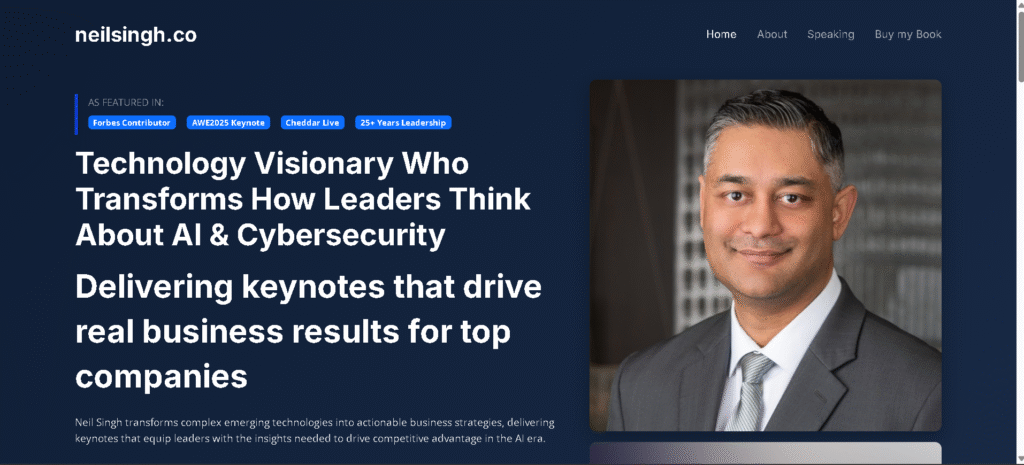
What motivated you to create neilsingh.co, and what was the vision behind it?
Neilsingh.co emerged from a recognition that we’re at a critical inflection point in technological history. As I engaged with the global technology community from 2017 onward, I witnessed an alarming trend: technological advancement was accelerating, but public understanding and ethical frameworks weren’t keeping pace. A dangerous divide was forming what I call a “technological aristocracy” where competency in AI and emerging technologies determines who thrives and who gets left behind.
The vision for neilsingh.co is multi-dimensional. On one level, it’s a personal brand that represents my expertise as a technology executive and AI developer. But more fundamentally, it’s an advocacy platform dedicated to democratizing technology education and championing ethical development practices that prioritize human outcomes.
My work spans AI solution development for enterprise clients, cybersecurity innovation protecting the full attack surface from user to device to access point, and global thought leadership through keynotes, my podcast, and my forthcoming book, The Exposure Economy: Reclaiming Your Digital Identity in an Age of Surveillance Capitalism (2026). Everything channels through one lens: how do we build technology that serves humanity’s interests rather than exploiting them?
How did you identify the gap or problem that your venture solves?
The gap became impossible to ignore once I looked beyond the hype cycle. Despite widespread adoption of AI tools like ChatGPT and pervasive technology use, there’s a critical distinction between usage and competency. People interact with sophisticated technology daily, yet most lack fundamental understanding of how these systems work, what risks they pose, or how to leverage them strategically.
This creates multiple problems. First, there’s massive economic disparity AI specialists commanding eight-figure compensation packages while average families navigate economic uncertainty on $65,000 annually. Second, there’s an ethical crisis: corporations harvesting personal data and manipulating consumer behavior through surveillance capitalism, with populations largely unaware of the transaction they’re making. Third, environmental and social costs are mounting as Big Tech pursues growth without sustainable frameworks.
The real problem isn’t technology itself it’s the unethical, unsustainable development model that prioritizes corporate profit over human wellbeing. My ventures address this by focusing on outcome-driven AI applications that solve specific business and social problems, building privacy-focused cybersecurity solutions, and educating global audiences about how to engage with technology on their own terms rather than being passive subjects of digital exploitation.
What makes neilsingh.co stand out from other platforms in the same space?
What distinguishes neilsingh.co is the integration of three critical elements that rarely coexist: deep technical expertise in AI development and cybersecurity, proven entrepreneurial leadership building real-world solutions, and unwavering commitment to ethical frameworks that prioritize human enhancement over displacement.
I’m not a theorist commenting from the sidelines I’m actively training AI models, building security platforms, and deploying solutions for enterprise clients. But I’m also not a pure technologist blind to broader implications. My approach is grounded in a fundamental question that guides everything: “How does this serve humanity?”
This manifests in several ways. My keynotes and presentations always emphasize AI as augmentation rather than replacement of human capability. My startup work focuses on outcome-driven use cases with measurable business impact. My advocacy through my platform, upcoming book, and media appearances including AWE2025 challenges the surveillance capitalism model and educates audiences on reclaiming digital autonomy.
Perhaps most importantly, I’m willing to tackle problems others avoid. Digital privacy, ethical AI development, and sustainable technology frameworks aren’t popular topics in an industry driven by rapid growth and profit maximization. But they’re essential conversations, and my credibility comes from having skin in the game building businesses in this space rather than just critiquing from outside.
What challenges did you face while building your brand, and how did you overcome them?
Building a personal brand as an immigrant facing work restrictions presented immediate challenges. Coming from New Zealand to the United States in 2016 with no existing network or brand presence required complete reinvention. The solution was strategic content creation and authentic engagement sharing expertise, contributing to conversations around finance and technology, and building relationships with industry leaders organically.
But the deeper challenge came later, as my thinking evolved. In recent years, I recognized that simply advocating for innovation and emerging technology wasn’t enough in fact, it risked being complicit in harmful outcomes. Technology was increasingly infringing on consumer rights through data manipulation, creating economic displacement, and contributing to environmental degradation.
This required a significant pivot in my brand positioning. Rather than being a cheerleader for technological progress, I became a critical advocate for ethical development. This shift was challenging because it meant potentially alienating parts of my audience and taking positions that aren’t always popular in tech circles dominated by “move fast and break things” mentality.
I overcame this by staying grounded in my core values and trusting that clarity of purpose attracts the right opportunities. The alignment between my personal brand, my book on surveillance capitalism, my startup ventures, and my public advocacy became much stronger once I committed to this ethical framework. Action and discipline showing up consistently with a clear message turned initial challenges into competitive advantages.
What has been your most difficult decision as a founder so far?
The most difficult decisions involve walking away from stability and environments that don’t align with my values. In a world that often rewards compromise and going along with prevailing winds, choosing principle over comfort requires genuine conviction.
Specifically, I’ve had to turn away from opportunities that would have been financially lucrative but ethically questionable partnerships with organizations whose approach to AI development or data practices contradicted my commitment to human-centric technology. I’ve also had to distance myself from professional environments where culture didn’t match my values around collaboration, respect, and purpose-driven work.
These decisions are particularly challenging because entrepreneurship already involves substantial financial uncertainty. Walking away from guaranteed revenue or prestigious affiliations feels counterintuitive when you’re building something from the ground up. But I’ve learned that your reputation and integrity are your most valuable assets. Compromising them for short-term gain undermines everything you’re trying to build long-term.
The framework I use is simple but demanding I ask myself whether a decision moves me closer to or further from my purpose. If I cannot articulate how something serves the broader mission of ethical, human-centric technology development, it’s not the right opportunity regardless of the immediate benefits.
Can you share a turning point or milestone that gave you confidence in your journey?
The turning point came when I achieved absolute clarity about my “why” the fundamental purpose driving my work. That clarity transformed everything because it provided an organizing principle for all decisions, communications, and strategies.
I realized that my purpose isn’t just to build successful businesses or develop innovative technology. It’s to impact how we develop and deploy AI and emerging technologies so they enhance human potential rather than exploit or replace people. The question that crystallizes this is: “How many lives can I positively impact through this work?”
Once I understood this, the alignment became obvious. My personal brand through neilsingh.co, my upcoming book on surveillance capitalism and digital identity, my AI and cybersecurity startups, my keynote speaking, and even my daily content creation all flow from this single source. They’re not disparate activities they’re integrated expressions of one coherent mission.
This clarity gave me confidence because I stopped questioning whether I was on the right path. I know my goal hasn’t been fully achieved yet, but my daily discipline carries me closer every day. When you can see how all your efforts connect to a larger purpose that serves others, the challenges become more manageable, and the direction becomes unmistakable.
How has the response been from your audience or clients so far?
The response has been tremendously validating and continues to grow both domestically and internationally. My audience engagement spans multiple channels keynote presentations on AI and cybersecurity, podcast conversations, LinkedIn thought leadership, and media features.
What’s particularly encouraging is the quality of conversations I’m having. I’m connecting with C-level executives at major corporations seeking outcome-driven AI solutions, cybersecurity leaders looking to implement comprehensive protection frameworks, and policymakers interested in ethical technology governance. These aren’t casual inquiries they’re substantive dialogues about solving real problems.
My upcoming appearance at AWE2025 (Augmented World Expo) and the anticipated 2026 launch of my book represent inflection points where I expect this reach to expand significantly. The book in particular The Exposure Economy: Reclaiming Your Digital Identity in an Age of Surveillance Capitalism addresses issues people are increasingly concerned about but don’t know how to navigate.
Perhaps most meaningful is the international dimension. While my primary base is the United States, my influence is growing globally as organizations worldwide grapple with the same fundamental questions: How do we implement AI ethically? How do we protect digital privacy? How do we develop technology that serves people rather than exploiting them? These are universal challenges, and the response confirms there’s substantial appetite for principled, practical guidance.
What role does technology and digital innovation play in your business?
Technology and digital innovation aren’t just tools for my business they’re the core of what I do and how I advocate for change. As an AI developer actively training and testing models, building cybersecurity solutions, and deploying enterprise applications, I’m deeply immersed in the technical work of innovation.
But my approach to technology is fundamentally shaped by a critical perspective: mastery of AI and emerging technologies creates value when it elevates human capability and solves genuine problems.
The question I consistently ask is: “How does this help humanity? What social and business problems can we solve with this technology? How do we develop it responsibly?”
This means I work at the intersection of technical capability and strategic application. For my enterprise clients, I focus on outcome-driven AI use cases with measurable business impact not implementing technology for its own sake but deploying it where it creates competitive advantage and operational efficiency. For my cybersecurity ventures, I’m building platforms that protect the full attack surface using AI-powered solutions that adapt to evolving threats.
Simultaneously, my advocacy work through neilsingh.co, my speaking engagements, and my book emphasizes the critical importance of ethical frameworks. We cannot reap the benefits of AI and emerging technologies if we develop them unsustainably, without risk assessment, or in ways that violate human dignity and privacy. Technology evolution has a price, and if we’re unwilling to pay attention to that price, we’ll create more problems than we solve.
How do you see neilsingh.co growing in the next 5 years?
Over the next five years, I see neilsingh.co evolving into the definitive global platform for ethical AI and technology education while my startup ventures scale to serve enterprise clients worldwide through my other startup ventures also.
The immediate catalyst is my 2026 book launch, which I anticipate will significantly expand my reach and establish me as a leading voice on digital privacy, surveillance capitalism, and ethical technology development. This will open doors for expanded keynote opportunities, advisory positions with organizations navigating AI implementation, and potentially policy consultation work.
My startup ventures focused on outcome-driven AI solutions and comprehensive cybersecurity platforms are positioned to scale as organizations increasingly recognize that ethical, sustainable technology development isn’t just morally right, it’s competitively advantageous. The companies that get ahead of regulatory frameworks, that build trust through privacy-respecting practices, and that implement AI to enhance rather than replace their workforce will outperform those chasing short-term gains through exploitation.
I see myself expanding my international presence through speaking engagements, strategic partnerships, and collaborative ventures with organizations aligned on the mission of human-centric technology. The goal isn’t just business growth it’s impact at scale.
If I’m successful, in five years we’ll see measurable progress in digital literacy, increased adoption of ethical AI frameworks, and growing recognition that technology must be developed in harmony with human social systems rather than in violation of our natural state.
Ultimately, success means changing the conversation and influencing how the next generation of technology leaders thinks about their responsibility to society.
What has been your biggest learning from failures or setbacks?
My biggest learning from failure, particularly from my early entrepreneurial ventures in my twenties, is that self-belief and disciplined action are the foundation of everything else. In those early days, I learned the hard way that the ability to develop innovative ideas doesn’t automatically translate to business success. You need to believe in yourself because initially, nobody else will you’re accountable to your own discipline, determination, and outcomes.
But beyond self-belief, I’ve learned that failure teaches you to ask better questions. Instead of “Why didn’t this work?” the more productive question is “What is my purpose, and how does this experience refine my understanding of it?” When you fail at something that wasn’t aligned with your core purpose anyway, it’s actually course correction, not failure.
This perspective shift has been transformative. I’ve learned to let go of things that hold me back environments that don’t align with my values, opportunities that would compromise my integrity, and relationships that don’t serve mutual growth. The willingness to walk away from comfort and stability when they conflict with purpose isn’t reckless it’s essential for achieving what you’re meant to accomplish.
Perhaps most importantly, I’ve learned that setbacks test whether you truly believe in what you’re doing. When challenges arise and they will your response reveals whether you’re pursuing something authentic or just chasing external validation. The discipline to persist, to show up every day even when progress isn’t obvious, separates those who achieve meaningful impact from those who give up when things get difficult.
How do you balance your professional responsibilities with personal life as a founder?
Balance as a founder is less about equal time allocation and more about integration and intentionality. But I need to be honest my understanding of balance was fundamentally reshaped by two profound personal experiences that changed everything.
A few years ago, my mother had her digital identity stolen. Watching someone I love become a victim of the surveillance economy I’d been warning about professionally was devastating. It wasn’t abstract anymore it was personal. That experience became the catalyst for my book, The Exposure Economy: Reclaiming Your Digital Identity in an Age of Surveillance Capitalism, set to release in 2026. My purpose shifted from professional advocacy to personal mission.
Then in 2024, my son suffered from a critical illness. That experience reshaped my professional and personal priorities entirely. Suddenly, everything became crystal clear: my family comes first, and whatever professional endeavors I pursue are ultimately for the people I care about in my life. Success means nothing if it comes at the expense of being present for those who matter most.
These experiences taught me that balance isn’t about compartmentalization it’s about alignment. I’m very deliberate about protecting what matters. I prioritize being kind to others irrespective of whether they support me or share my views, because I’ve seen firsthand how fragile life can be. I actively detach from negative influences: cancel culture, ego-driven environments, bias and preferential treatment, and relationships characterized by arrogance rather than mutual respect.
When you build a business around purpose rather than just profit, especially when that purpose is rooted in protecting the people you love, it changes everything. I’m not trying to separate my work from my life my work now flows from what matters most in my life. The discipline I apply to my business serves my family first, and that clarity of priority makes every decision simpler.
Practical balance comes from knowing your “why” at the deepest level. My why isn’t abstract it’s my mother’s stolen identity, my son’s recovery, and my family’s wellbeing. When you ground your professional work in the people you love and want to protect, you stop chasing validation and start building something truly meaningful.
What is your leadership style, and how do you keep your team motivated?
My leadership style centers on clarity of purpose and empowerment through trust. I believe the most effective teams are built when everyone understands not just what we’re doing, but why it matters how our work serves a larger mission beyond immediate business metrics.
I lead by example, demonstrating the discipline and action I expect from others. God knows and builds our path, but ultimately it’s up to us to walk it I apply this philosophy to leadership by creating clear vision while giving team members ownership of their role in achieving it. Purpose will never be the same for everyone, but when individuals understand how their unique contributions connect to collective impact, motivation becomes intrinsic rather than something I need to manufacture.
I also prioritize creating environments free from the toxic patterns I’ve identified: cancel culture, ghosting, bias, preferential treatment, and ego-driven decision-making, money driven decision making with communication that threatens rather than empowers staff to do their best. These behaviors destroy team cohesion and prevent people from doing their best work. Instead, I focus on building cultures of respect, direct communication, accountability, and mutual support where people can bring their full capabilities to solving problems.
Motivation ultimately comes from meaning. When your team knows they’re working on something that genuinely matters in our case, building ethical technology that enhances human potential rather than exploiting people that intrinsic purpose drives performance more effectively than any extrinsic incentive. My role is to maintain that clarity, remove obstacles, and ensure everyone has what they need to execute on our shared vision.
What advice would you give to young entrepreneurs who are just starting their journey?
First and most fundamentally: you have to believe in yourself, because nobody else will at first. You’re accountable to your discipline, your determination, and your outcomes. This isn’t motivational rhetoric it’s practical reality. The entrepreneurial journey tests your commitment relentlessly, and self-belief is what carries you through the inevitable challenges.
Second, understand your why before you optimize your how. Purpose is driven by why is not motivated by money but by the impact you make on the lives of people you serve. The bigger your why, the more people you want to impact, and money follows this mantra. Wealth comes with patience and discipline, but first you must understand your contribution that stems from your why.
Ask yourself: How many lives do I want to change or impact through what I’m building? If you cannot answer this question, you probably don’t have a scalable business. Your why stems from the problem you’re solving, how many people need that solution, what the desired outcome is, and ultimately what impact your solution will have on businesses or consumers.
Third, be willing to tackle problems others avoid. Your unique value proposition comes not just from disruption but from the realization of need. The most valuable opportunities exist where there’s genuine demand but insufficient solutions because the problem is difficult, uncomfortable, or unpopular to address.
Fourth, take action and be disciplined. Ideas without execution are worthless. Show up every day, maintain focus, and build incrementally toward your vision. Startups are a journey, not a race sustainable progress beats unsustainable sprints.
Finally, be kind to others irrespective of whether they support you, and detach from negative influences. Walk away from environments that don’t align with your values, no matter how comfortable or lucrative they seem. Your integrity and the relationships you build with respect and authenticity will become your greatest assets.
Finally, what message would you like to share with Scoop Magazine readers and aspiring entrepreneurs?
My message is this: We’re at a critical moment where technology’s trajectory will be determined by the choices we make today. The question isn’t whether AI and emerging technologies will reshape our world they already are. The question is whether that transformation will enhance human potential or diminish it, whether it will democratize opportunity or concentrate power, whether it will respect human dignity or exploit it for profit.
To aspiring entrepreneurs: you have the opportunity and responsibility to build the future you want to see. Don’t just chase market opportunities solve problems that genuinely matter. Don’t just optimize for growth build sustainably with ethical frameworks that prioritize human outcomes. The organizations that will thrive long-term aren’t those extracting maximum value from exploitation, but those creating genuine value through solutions that serve people.
The biggest gap we face isn’t technological it’s educational. There’s a dangerous divide forming between those who understand how to leverage emerging technologies and those being left behind. If you’re building something, ask yourself how it bridges that gap rather than widening it. The true measure of entrepreneurial success isn’t your valuation it’s the positive impact you create at scale.
To everyone navigating this technological transformation: educate yourself, advocate for your rights, and demand better from the companies you trust with your data and digital life. You’re not powerless in this equation. Understanding how these technologies work, what risks they pose, and what alternatives exist gives you agency in shaping your own digital future.
We need entrepreneurs, technologists, and leaders who are willing to stand for something beyond quarterly earnings who understand that our purpose extends beyond personal success to collective wellbeing. That’s the future I’m building through neilsingh.co, through my ventures, through my advocacy, and through every conversation, presentation, and relationship.
The path forward requires all of us to act with discipline, lead with purpose, and refuse to compromise our values for convenience. That’s how we build a technological future that genuinely serves humanity.
Media Kit Requirements
Website: https://neilsingh.co
Social Media Links:
- LinkedIn: 🌐 linkedin.com/in/neilsingh01
- Twitter/X: @NSinghT90
- Instagram: nsinght90
- Startup Website: https://www.t90ventures.com
Logo: [To be provided]
Additional Context:
- Upcoming Book: The Exposure Economy: Reclaiming Your Digital Identity in an Age of Surveillance Capitalism (2026)
- Speaking Engagements: AWE2025, Forbes, Cheddar Live
- Expertise Areas: AI Development, Cybersecurity, Ethical Technology, Digital Privacy, Entrepreneurial Leadership
- Geographic Presence: United States-based with growing international influence
Note: We at scoopearth take our ethics very seriously. More information about it can be found here.

